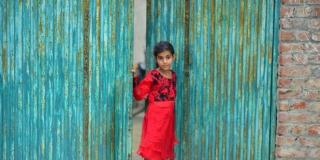
In Pakistan, children with disabilities often go unseen and unheard, and are left watching while their brothers and sisters go to school.
Nazia* was sitting in the doorway of her home, waiting. She knew what would happen next. First, there would be the sound of children talking and laughing. Then, the first glimpse. Soon, she would see them walking by – running if they were late. Her older sister would join them, but Nazia couldn’t.
She desperately wanted to go to school with the other children, but having had polio as a baby, the muscles in her legs were weakened and she couldn’t walk.
“I felt very sad to see other children go to school,” Nazia says.
Pakistan has the second highest number of children out of school in the world, estimated at nearly 23 million1. There have been attempts to collect data on how many children with disabilities are among them. However, it’s likely the figures are under-reported as a result of social stigma. Children like Nazia remain ‘hidden children’ – unseen and unheard. They stay at home each day and are denied an education and the chance of a brighter future
Children with disabilities face barriers at every turn.
A 2023 survey of government schools in Pakistan provides an indicator of how widespread the problem is. Just 11% of schools reported having children with disabilities enrolled.
Children like Nazia face many barriers that prevent them from attending school. In rural areas especially, beliefs persist that disabilities are ‘a curse’ and that children like Nazia can’t learn. Families who do try to put their child in school are confronted with overcrowded classrooms, inaccessible toilets and teachers who lack the training and resources to be able to include children with disabilities.
Aziz, Nazia’s father, knew that his daughter dreamed of going to school. A labourer working for a daily wage, he spent any money he had on treatments for Nazia, but she remained unable to stand or walk. “We worried about her future,” he says.
Marya went from house to house
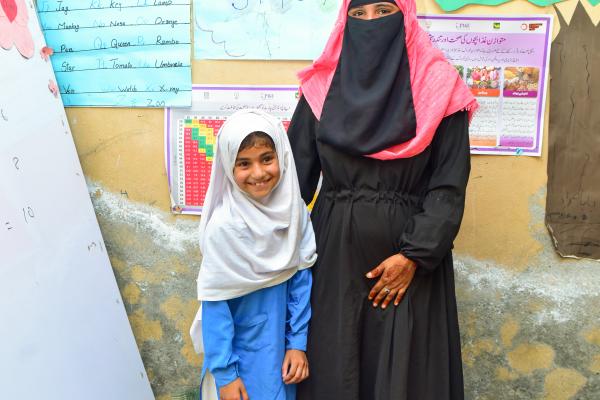
For Nazia, it began like any other day. She watched the children leave for school as she always did. But then, from her vantage point by the door, Nazia saw a woman approach her home.
She had no idea that her dream of going to school was about to come true.
Marya began volunteering for VSO while studying for her degree. “Teaching and sharing knowledge is something I am truly passionate about,” she explains. She was acutely aware that children from her community were missing out on an education and the opportunities that came with it. “If a child is educated, their future can be bright.”
VSO trained Marya to teach and then helped her open a VSO learning centre in her home. With your support, there was a mat for children to sit on. Posters on the walls. Pens, pencils, books and resources to make learning fun and memorable.
Children who had never attended school, or who had been forced to leave, were offered the chance to attend for six months and learn to read, write and count. Marya was determined to fill her class with children who found all other doors closed.
We went door to door. When I visited Nazia’s home, I asked her family why she wasn’t attending school, and they told me about her disability. I immediately decided that no matter what, I would make sure Nazia got an education.”
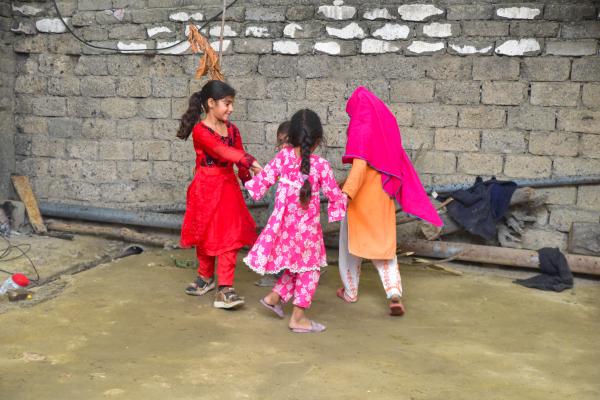
An education. Hope. A better future.
Nazia’s parents will never forget the day they saw her standing for the first time and taking her first steps. VSO provided her with leg frames that gave her the support she needed to move around independently.
Nazia’s life was changing fast. At first, she was quiet in class. “In the beginning, she would sit alone,” remembers Marya. “But she changed.”
Nazia made friends. Her confidence grew. She replied quickly when Marya asked her a question and, as the weeks went by, she caught up on the learning she had missed.
Just over two years after Marya arrived at her home, Nazia’s disability no longer holds her back. Every day, her dad takes her to a local school that Marya helped her enrol in.
Nazia’s parents encourage her to dream big. “They tell me that if I study well, I can achieve great things.” Her aim is to follow in Marya’s footsteps and become a teacher herself.
“I feel like I have achieved something meaningful,” says Marya. “And I hope that I can continue doing even more in the future.”
Changing lives forever
With your support:
-
VSO has 100 learning centres in Pakistan.
-
Volunteers like Marya liaise with schools, so children can transition from learning centres into mainstream education.
-
VSO is working to ensure the rights of people with disabilities are protected in democratic, rights-based and inclusive legislation.
Nazia is among the fortunate ones, now in school. But thousands of other children with disabilities are still isolated and unseen, missing out on their education. It’s not right. With your support today, it CAN change.
Footnotes
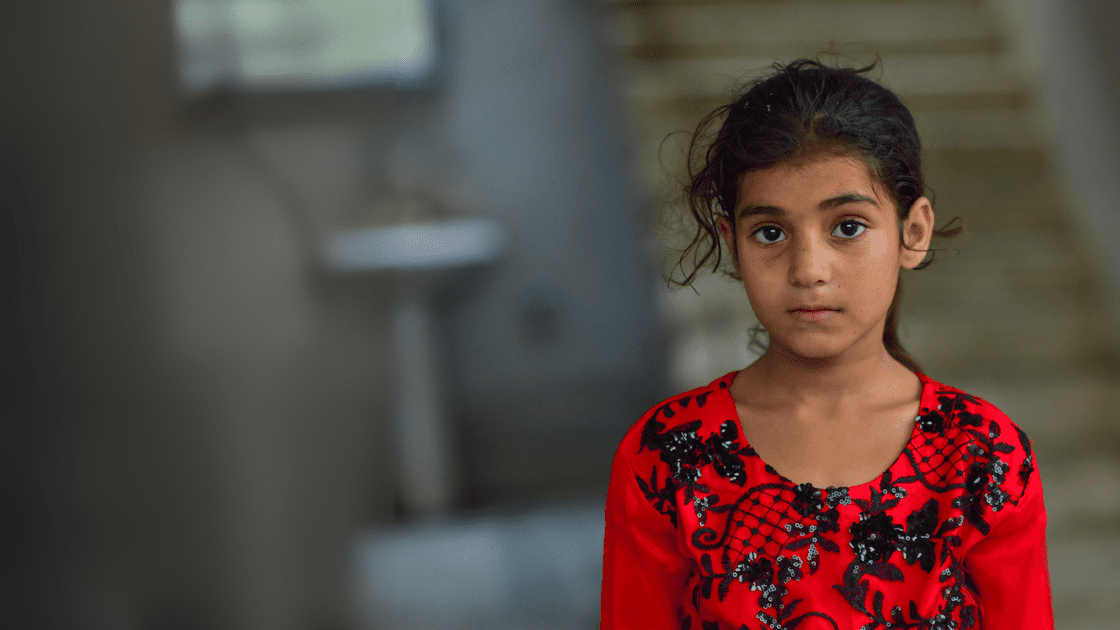
All children deserve to be seen, heard and go to school.
Every day thousands of children with disabilities in Pakistan go unseen and unheard, left watching as their brothers and sisters go to school. Denied an education, they are trapped in a cycle of poverty with little chance of a brighter future. Will you help give a child like Nazia* the gift of a life-changing education?
Read more
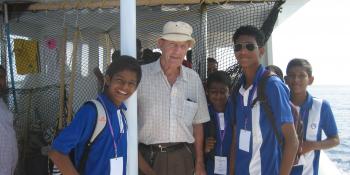
Transforming lives through education: Geoffrey’s VSO legacy
With a deep belief in the transformative power of education, Geoffrey from Norfolk, UK, has devoted his life both in the UK and abroad to making education more accessible for all.
